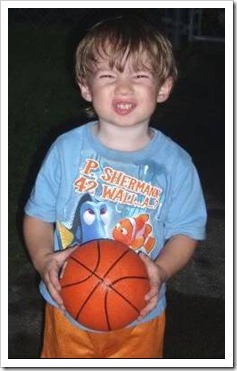
But maybe it does not have to be.
In the past few days, I have been reading an excellent book called Predictably Irrational by Professor Dan Ariely, a behavioral economist at MIT. In one of the chapters, he describes experiments that show humans are so sensitive to loss they do everything they can to avoid losing even things they could have, but do not actually have. One of these things, he says, is options.
In his description, he give parents’ decision-making about their children’s development as an example of how irrationally expensive it is to keep our kids’ options open. If you do the math, he says, you see that spreading the family resources over 4 different activities each week, say ballet, piano, art and karate, means your child makes 1 unit of progress in each of them every week, as opposed to choosing just one activity, say piano, which would allow the child to make 4 units of progress every week and become really good at it.
From a mathematical point of view, ¾ of your money is wasted and your child never reaches a level of competence that would make their chosen pursuit generate significant enough rewards. It is therefore irrational to pay for and drive your child to many afternoon activities and a more economical choice would be to pick a single “winner” and give it all you have got (or a couple of related/complementary “winners”, perhaps).

You see, the discussion of how valuable each extracurricular activity is depends on the chances of success you expect in each field, as well as what you value. Alas, in real life, there are only a handful of really great opera singers, world-class painters, immortal actors and champion martial artists. In any global competitive field, the likelihood your child will “make it big” is low, no matter how much time, effort and money you put into it.
This leaves a life of repetitive disappointment and unhappiness, which, if you think about it, is really the opposite of what you want for your children. No matter how we put it to the parents we meet (and we meet many), if they had to choose one thing to give their kids above all else, it would be happiness. That is their highest value as parents. Happiness.
Let’s say you consider developing the artistic side of little Bobby. Subjecting him from his 3rd year to 6 hours of painting classes a week may improve his painting technique beyond that of most other people, but can you already sense the pressure building up? Can you sense how little Bobby might feel imprisoned by his parents’ choice for him? Can you imagine what teenage Bobby might choose to rebel against? Can you predict Bobby’s life after his art receives lukewarm reviews from some people who matter in his field?
How will grownup Bobby do socially? Will he be able to mingle with athletes or musicians? Will he be able to enjoy a walk in the park, a movie or (gulp) a visit to an art gallery? Will he be able to carry on a casual conversation about any topic other than art and painting?

On the other hand, kids who are exposed to a wide variety of activities and experiences, while they may not excel in any of them, develop their mental flexibility, learn to engage many kinds of people in many kinds of situations and build resilience. They gain emotional intelligence that will serve them well every day of their life, everywhere they go.
In the past week or so, our family has been watching a series of programs called “Music School”. Out of thousands of children, the producers picked 16 kids, aged from 8 to 13, who want to be singers. Each program shows 8 of them preparing and performing a song, guided by a famous musician.
As you would expect, these young people are pretty amazing singers, but that is not the most important part. When they are interviewed, their level of expression is very high, most of them can speak more than one language, they have great relationships with their families, they quickly befriended one another, they connect to the lyrics of the songs they perform intensely and they “work the crowd” in a natural, effortless way.
Moreover, the ones who do best are those who can handle pressure, keep themselves positive and motivated and accept the challenges thrown at them by the panel of “music teachers”.
It is not talent and success that create happiness. It is happiness that allows talent to be expressed and creates success.
A
Rather than subjecting your children to hours of drilling and endless pressure on the way to achievements that would one day make them happy, make them happy today and every day by accepting their choices, encouraging them and using your resources to help them achieve what they want to achieve, to experience life and to build their character in the process.
Happy parenting,
Gal











